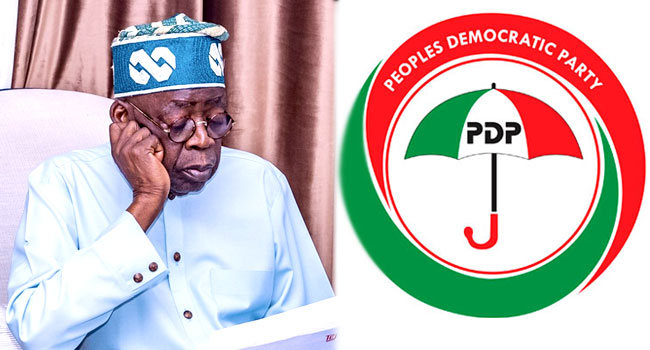IPMAN Rejects Six~Month Petrol Price Stability Proposal
The Independent Petroleum Marketers Association of Nigeria (IPMAN) has dismissed a proposal by the Petroleum Products Retail Outlet Owners Association of Nigeria (PETROAN) to mandate fuel price reviews every six months.
IPMAN argued that the proposal contradicts the Petroleum Industry Act and undermines the principles of a deregulated market, where sellers set their own prices.
Last week, PETROAN criticized the frequent reduction in fuel prices, citing heavy losses for marketers. The ongoing price cuts, largely driven by Dangote Refinery, saw petrol prices drop from N890 to N825 and now N815 per litre.
In response, the Nigerian National Petroleum Company Limited and other importers also lowered their prices to remain competitive.
PETROAN, bearing the brunt of these fluctuations, is calling for a regulation to stabilize fuel prices by enforcing a mandatory six-month review period.
“The association stressed that the sudden downward review of prices has resulted in massive losses, with those affected counting their losses in billions of naira. This situation poses a significant fear for further investment in the sector, as investors are wary of unpredictable market conditions.
“To address these challenges, PETROAN proposed that regulatory authorities establish mechanisms to encourage price stability for at least six months. This approach will help reduce the uncertainty and risk associated with investments in the sector, ultimately promoting economic development and protecting the interests of consumers and Nigerians,” PETROAN said in a statement.
However, IPMAN’s National Vice President, Hammed Fashola, opposed the proposal.
He argued that fuel prices are driven by crude oil costs and exchange rate fluctuations, questioning how PETROAN expects prices to remain fixed for six months if the naira strengthens significantly against the dollar.
“It cannot work, and I’m not in support of that. If the PETROAN leaders really understand what the deregulation concept is all about, they will not suggest this proposal,” Fashola declared.
He spoke further, “There are some factors that determine the fuel price, like the exchange rate. Are you telling me that if the naira becomes stronger against the dollar and the Platt rate of crude oil comes down, we should hold our price for six months and keep selling at higher rates? It is not done.
“Deregulation brings competition, that’s what many people don’t know. We have to face reality. That’s competition for you. Everybody wants to sell, and it will open the market for investors to come in. So, that six-month idea is not possible, nobody will implement that.”
The IPMAN vice president explained that the government is trying to give importers and refiners a level playing field to operate in the downstream oil sector.
He disclosed that both importers and refiners will compete and this will give Nigerians cheaper fuel at the pumps while discouraging monopolistic tendencies.
“What the government is doing is to give a level playing field to everyone. If you’re an importer, nobody will stop you from importing if you know you will be able to sell what you import. If you’re a refiner producing your fuel locally, and you know there is an alternative for people, you will be careful when fixing your price. So, it is good for the system. It will not allow any sort of monopoly.
“Petrol was above N1,000 when the Dangote refinery started, now it is N860 per litre. That’s the beauty of deregulation. But if someone believes he can go and get it to sell to us at N700, why should anyone deny such a person?” he asked.
Fashola stressed that importers do not get dollars from the Central Bank of Nigeria and so should not be stopped from importing.
“I am sure those importing are not getting their money from the Central Bank of Nigeria, they know how they source their money to do the importation. Why stop them?
“If we get to a point where the locally refined product is so cheap that you won’t be able to sell when you bring in products, then we are good to go. At that point, nobody will talk about importation again,” he said.
3/19/2025, 9:04:42 AM
views 5256
147







